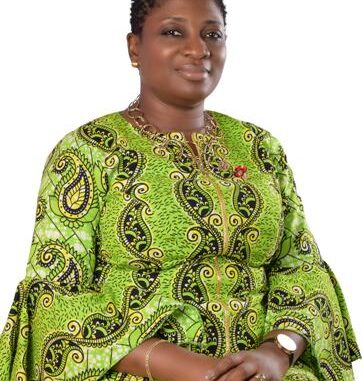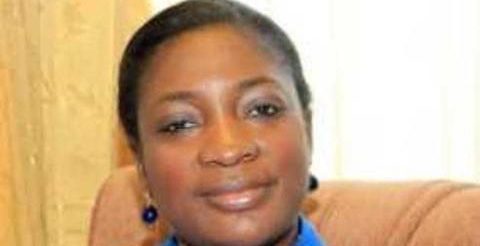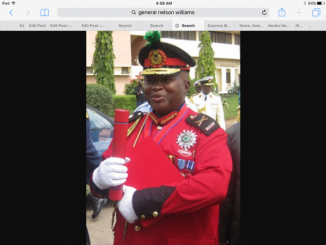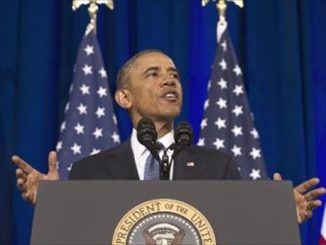
By Victor Mengot
HOLDING THE GOVERNMENT TO ACCOUNT – THE ROLE OF AUDIT SERVICES SIERRA LEONE ASSL
1. INTRODUCTION
The prime function of public sector audit is to provide independent assurance, information and advice to those charged with governance, to properly account for the use of public resources. In addition, ASSL strive to assist audited bodies improve their financial and operational management processes, governance and propriety in the conduct of public business through recommendations proffered during our mainstream financial, compliance and performance audits.

In these circumstances therefore, ASSL have continually re-evaluated and reassessed how it discharges these responsibilities. The Auditor General must ensure the Agency’s work consistently meets the highest standards expected of them and that their activities remain relevant to the environment in which we operate. The key elements in the Agency’s strategy to meet these challenges are ensuring that it:
§ embraces a culture of continual improvement;
§ invests the time and resources needed to develop the capacity it requires, professionally and organisationally, to respond to the challenges it faces; and, does all this in ways that do not compromise or call into question their independence.
2. LEGAL MANDATE: SIERRA LEONE 1991 CONSITUTION
Section119.
(1) There shall be an Auditor-General for Sierra Leone whose office shall be a public office, and who shall be appointed by the President after consultation with the Public Service Commission, and subject to the approval of Parliament.
(2) The public accounts of Sierra Leone and all public offices, including the Courts, the accounts of the central and local government administrations, of the Universities and public institutions of like nature, any statutory corporation, company or other body or organisation established by an Act of Parliament or statutory instrument or otherwise set up partly or wholly out of Public Funds, shall be audited and reported on by or on behalf of the Auditor-General, and for that purpose the Auditor-General shall have access to all books, records, returns and other documents relating or relevant to those accounts.
(3) The public accounts of Sierra Leone and of all other persons or authorities referred to in subsection (2) shall be kept in such form as the Auditor-General shall approve.
(4) The Auditor-General shall, within twelve months of the end of the immediately preceding financial year, submit his report to Parliament and shall in that report draw attention to any irregularities in the accounts audited and to any other matter which in his opinion ought to be brought to the notice of Parliament.
(5) Parliament shall debate the report of the Auditor-General and appoint where necessary in the public interest a committee to deal with any matters arising therefrom.
(6) In the exercise of his functions under this Constitution or any other law, the Auditor-General shall not be subject to the direction or control of any person or authority.
(7) The provisions of subsection (6) shall not preclude the President, acting in accordance with the advice of Cabinet, or Parliament from requesting the Auditor-General in the public interest to audit at any particular time, the accounts of anybody or organisation as is referred to in subsection (2). 52 The Laws of Sierra Leone on the Sierra Leone Web The Constitution of Sierra Leone, 1991
(8) The salary and allowances payable to the Auditor-General, his rights in respect of leave of absence, retiring age and other conditions of service, shall not be varied to his disadvantage after his appointment.
(9) The provisions of section 137 of this Constitution, relating to the removal of a Judge of the Superior Court of Judicature, other than the Chief Justice, from office, shall apply to the Auditor-General.
(10) The Auditor-General shall retire from office on attaining the age of sixty-five years or such age as may be prescribed by Parliament.
(11) The administrative expenses of the office of the Auditor-General including all salaries, allowances, gratuities and pensions payable to or in respect of persons serving in the Audit Service shall be a charge upon the Consolidated Fund.
(12) The accounts of the office of the Auditor-General shall be audited and reported upon by an auditor appointed by Parliament.
(13) Any person appointed to be the Auditor-General of Sierra Leone shall, before entering upon the duties of his office, take and subscribe the oath as set out in the Third Schedule to this Constitution.
(14) Whenever the office of the Auditor-General is vacant or the holder of the office is for any reason unable to perform the functions of his office, the President may, in consultation with the Public Service Commission, appoint a person to act in the office and any person so appointed shall, subject to the provisions of the section relating to the removal of the Auditor-General, continue to act until his appointment is revoked by the President.
3. RELATIONSHIP BETWEEN PARLIAMENT AND ASSL
Section 119 (5)
(5) Parliament shall debate the report of the Auditor-General and appoint where necessary in the public interest a committee to deal with any matters arising therefrom.
The Auditor General must present her report to Parliament and this is tabled in the Well of Parliament by the Chairman of the Public Accounts Committee (PAC), in this case the Hon. Sengepeh Thomas who is also the Deputy Speaker of Parliament. The Committee must in turn examine the findings through at a date to be agreed by the Members of the Committee and the sittings must be done in full view of the press and selected representatives of Public Interest Groups. The Committee also has powers to summon Ministers; Heads of Departmental Agencies; and other Senior Civil Servants to appear before Committee if necessary, to respond to the queries raised in the report. The Committee’s report and findings will then be submitted to the Clerk/Speaker of Parliament for a full debate in the Well of Parliament. Committee Members are also given the permission to register dissenting views during the debate and if that is the case, this must be included in the final report with reasoned justification. The full House will now have the responsibility to decide on how the agreed recommendations will be enforced.



